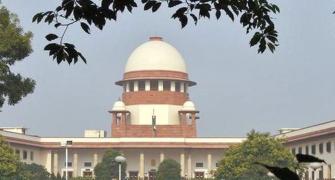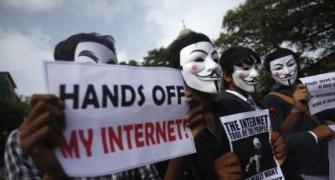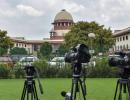
In 2012, a law student, Shreya Singhal, filed a public interest petition seeking an amendment to the Information Technology Act (Section 66A) after two girls -- Shaheen Dhada and Rinu Shrinivasan -- were arrested in Palghar of Maharashtra's Thane district.
While one posted a comment against the shutdown in Mumbai following Shiv Sena leader Bal Thackeray's death, the other 'liked' it.
In the wake of numerous complaints of harassment and arrests, the apex court on May 16, 2013, issued an advisory that a person accused of posting objectionable comments on social networking sites cannot be arrested without permission from senior officers like IG or DCP.
Since then, the IT Act has been the subject of heated discussion on a variety of issues, including the liability of big technology firms.
The Joint Parliamentary Committee on personal data protection has recently submitted its report.
The suggestions made by the JPC will be incorporated in new legislation on data protection keeping in its sights the Supreme Court ruling that privacy is a fundamental right.
Meanwhile, activists for Internet freedom have been clamouring for changes to the IT Act -- it is even possible that the IT Act will impinge on some aspects of the new Personal Data Protection Bill.

The National Crime Records Bureau's data on arrests under various provisions of the IT Act does not specify the clauses of the legislation under which the arrests were made.
Moreover, this is only from the arrests made in metropolitan cities.
However, the age and gender data of arrests for IT Act violation does reveal interesting trends: Women are a minuscule minority of those arrested under the IT Act, the largest chunk is between the ages of 18 and 30.
But there are minors in this category as well.
*Kindly note the image has been posted only for representational purposes.
Feature Presentation: Ashish Narsale/Rediff.com











